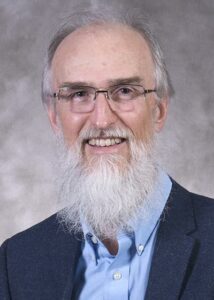Rodney Jackson will be presenting “2022 Update of the USDoL Geospatial Technology Competency Model (GTCM)” at the next GeoBytes webinar on Friday, June 3 at 12:00 pm ET. The webinar is FREE for all CaGIS members. See attached abstract for more information about the presentation.
Please see the CaGIS GeoBytes page for more information on registering.
Abstract
In collaboration with the US Department of Labor (USDoL), the National Geospatial Technology Center (GeoTech Center) is updating the Geospatial Technology Competency Model (GTCM). The GTCM framework was developed through a collaborative effort involving the US DoL Employment and Training Administration (ETA), the GeoTech Center, and industry experts. We are seeking geospatial professionals to complete a review of the GTCM. Their commitment to participate in an assessment of the GTCM tiers via online survey will enable us to update the competency model to best reflect the knowledge, skills, and abilities (KSAs) needed in the geospatial industry.
Dr. Rodney D. Jackson serves as the Director for the Special Operations School of Information Technology (SOSIT). He has 20 years of experience in higher education, having held various teaching and administrative positions at community colleges, universities, and governmental institutions of higher learning. A geographer by training, Rodney is Certified Geographic Information Systems Professional (GISP). He prefers to fly-fish local freshwater streams during his free time. Rodney retired from the United States Army Reserves as Lieutenant Colonel in the Engineer Corps (Geospatial Designator) in 2017.

